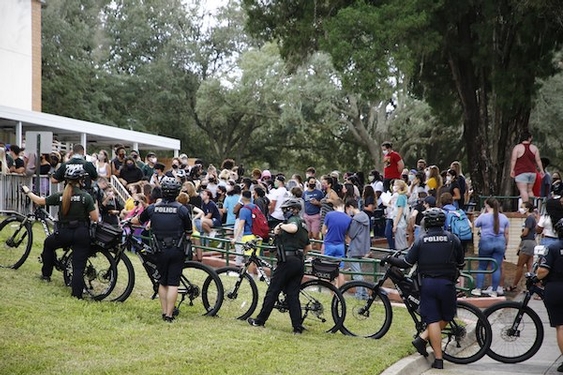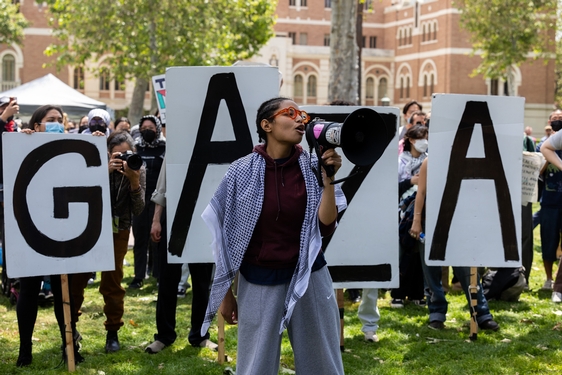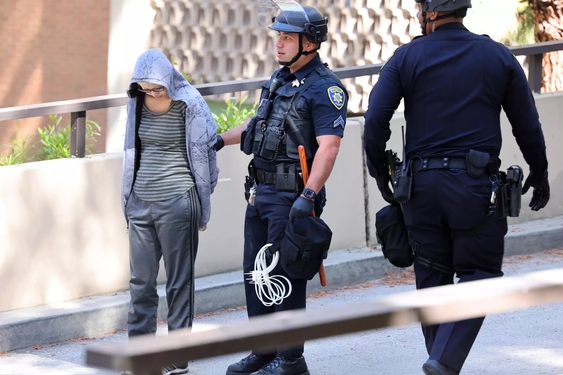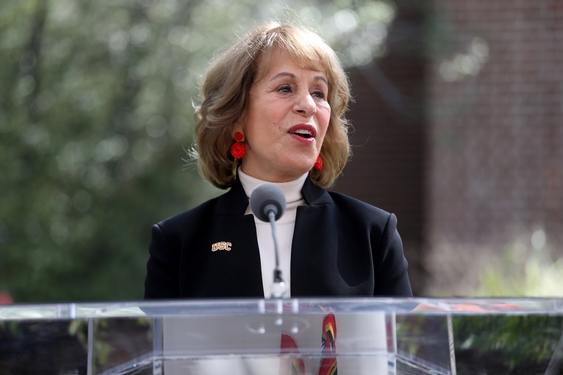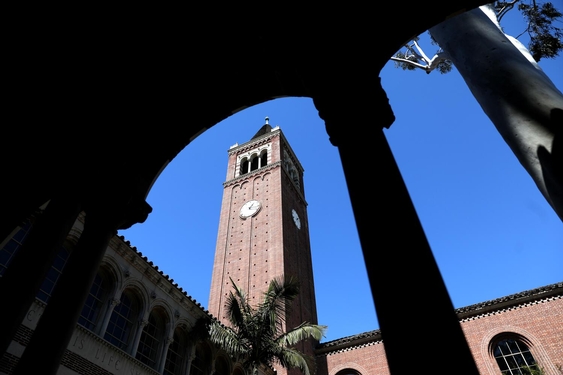A controversial bill that has alarmed university faculty leaders passed through the Florida House on Thursday, 77-42, and its counterpart moved favorably through the Senate Appropriations Committee.
HB 233, introduced by Rep. Spencer Roach, R-Fort Myers, and SB 264, introduced by Sen. Ray Rodrigues, R-Estero, seek to “protect intellectual freedoms” and “the expression of diverse viewpoints” at state colleges and universities.
The legislation would require each institution to:
Allow students to record classroom lectures without the consent of others for their personal use or for their use in a criminal or civil case.","type":"text
Prohibit universities from banning controversial speakers.","type":"text
In House committee discussions, proponents of the bills expressed fears of “cancel culture” — the idea of facing backlash for expressing unpopular beliefs. They said they believed a pervasive intolerance of uncomfortable ideas exists on college campuses across the country. Roach said students and faculty members often censor themselves out of fear of repercussions.
In House committee discussions, proponents of the bills expressed fears of “cancel culture” — the idea of facing backlash for expressing unpopular beliefs. They said they believed a pervasive intolerance of uncomfortable ideas exists on college campuses across the country. Roach said students and faculty members often censor themselves out of fear of repercussions.
In Florida, the issue has bubbled in recent years after a college visit from an extremist speaker and challenges posed by a tenured faculty member.
“We want to make sure on college campuses that students are being exposed to ideas that they like and also ideas that they hate, so they can learn to think critically and debate them,” Roach said in an interview with the Tampa Bay Times. “They’re going to get them in the real world; we don’t want them to live in a cocoon.”
Many university faculty members say the legislation will have an unintended chilling effect on free speech. They are particularly concerned about the provision that allows for recordings of people who have not consented, contrary to current state law.
Proponents say the intent is to make recording policies uniform because recording is already taking place.
The Advisory Council of Faculty Senates, comprised of leaders at each of the 12 state universities, met with State University System chairman Marshall Criser recently to share concerns.
The council passed a resolution recommitting itself to free speech and academic freedom at each university, “even when uncomfortable,” but wrote that the bills would “undermine learning, ideological diversity, faculty recruitment and university rankings, and have the unintended effect of shielding students from viewpoints that make them uncomfortable.”
“No one wants to experiment with new ideas in a learning environment when someone else could be making a permanent record of what they say,” said Erin Ryan, vice chair of the Florida State University faculty senate.
Academic freedom and free speech have been under greater scrutiny across the country and in Florida.
In 2017, Richard Spencer, one of the leaders of the violent Unite the Right rally in Charlottesville, planned a speech two months later at the University of Florida. The university rejected the request because it feared inciting violence but later allowed Spencer, on the grounds of free speech. Then-Gov. Rick Scott preemptively issued a state of emergency for Alachua County, and the university spent more than $500,000 on security.
Following Spencer’s speech, a spate of bills addressing free speech on campus were introduced in the state Legislature. In 2018, free speech “zones” were banned on college campuses, essentially stipulating that an entire public campus should allow free speech.
Last year, the issue came to boil at the University of Central Florida.
Professor Charles Negy taught as a tenured professor at UCF since 1998. He is author of the book White Shaming: Bullying based on Prejudice, Virtue-Signaling and Ignorance.
Last summer, as protests broke out across the country in response to the death of George Floyd, Negy posted a series of tweets that led to online petitions calling for his firing over “abhorrent racism.”
A six-month investigation with 300 interviews concluded that while Negy’s tweets and statements were protected under the First Amendment, Negy created a “hostile learning environment” that constituted “discriminatory harassment.”
In January, the school notified Negy of its intent to fire him. He has challenged the decision. The process is expected to take a year.
In an interview with the Tampa Bay Times, Negy said he supports the intent of the bills, as long as the politicians behind them are willing to leave party politics out of it.
“If you’re working at a university these days, you’re walking on eggshells,” he said. “If you say anything that oh so slightly constitutes what they call a microaggression, university administrators are eager to coddle and protect the person claiming they were offended by punishing the offenders.”
This month, a group of academics with a range of viewpoints formed a nonprofit, the Academic Freedom Alliance, to support faculty on these issues. Princeton University professor Keith Whittington, chairman of the Alliance, said the threats to academic freedom come from inside and outside universities, and span conservative and liberal viewpoints.
“Faculty across the board are nervous about their own students, whether or not their students will mobilize to call for their sanction or dismissal if they say the wrong thing,” he said.
Tim Boaz, president of the University of South Florida faculty senate, said he believes that knowledge is generated by pitting theories against one another other. But universities also must abide by values about how to treat their communities, he said. He denounced the bills.
“People should be able to express their views if they’re expressing them in a way that’s not harmful to others,” he said, but adding, “you have to expect that other people will have a different position, and they have a right to speak back as well.”
Paul Ortiz, president of the faculty union at the University of Florida, said the bills would further political division. University governing documents already support academic freedom and free speech, and establish grievance processes for those who feel their rights have been violated, he said.
If laws like this had existed when he completed his doctorate at Duke, he said he would never have moved to Florida. He worries about its effect on the state’s ability to recruit faculty and students.
“I think every generation creates some kind of myth like this, and they’ll kind of affix a concept or term,” he said. “‘Cancel culture’ is really hot now. But I don’t see any evidence it exists.
“Do people have strong opinions about topics? Yes, they do. But if you’re in a public debate and you lose that debate, then you’ve lost that debate. You didn’t get canceled.”
___
(c)2021 the Tampa Bay Times (St. Petersburg, Fla.)
Visit the Tampa Bay Times (St. Petersburg, Fla.) at www.tampabay.com
©2021 Tribune Content Agency, LLC


